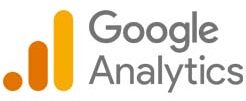Enhancing the enrichment of your website is a way through which you can add growth to your digital business. And measuring the success of your website is the way through which you can find the actual position of your standing business in the market and Which tools help you to measure the success of your website?
So, today we’ll talk about some factors and software applications that will assist you in heightening your business operation by adding up some changes to your website and
Note: Before taking the tour of the further content we want to enlighten you that this article holds only authentic & factual content that has been mentioned after a deep research.
In this digital generation, having a website is crucial for businessmen as well as individuals. However, simply having a website isn’t enough; you need to ensure that it’s performing well and reaching its intended audience. In addition to this, the question may come into your mind “Which Tools Help You to Measure The Success of Your Website” Right?
For this, website analytics tools come into play and streamline your work. These tools provide valuable insight into various aspects of your website’s performance, allowing you to make informed decisions to optimize its success.
This article will blow up your mind with some of the top tools that will help you measure the success of your website. Also, let you know about the benefits that you can take from their salient features. So, without making ado, let’s get started to read out further & focused content.
What Benefits Can You Have By Operating The Website Analytics Tools in Your Business?
Before moving ahead & reveal the top 10 website analytics tools and the top 10 benefits that you can take from these tools.
- Data-Driven Decision Making: Analytics tools offer data about user behavior, demographics, and interactions, and also enable you to make informed decisions based on real data rather than assumptions.
- User Behaviour Analysis: You can track how visitors navigate your website, which pages they visit, how long they stay, and where they drop off. This helps in identifying the actual areas for improvement in the user experience.
- Conversion Tracking: Analytics tools allow you to set up goals and track conversions, whether it’s sales, sign-ups, or other actions. This helps measure the effectiveness of your marketing campaigns as well as optimize your website for better conversions.
- SEO Insight: All the website analytics tools provide valuable data on how your website ranks in search results, which keywords drive traffic, and opportunities to improve your search engine optimization strategy.
- Keyword Research: The majority of website analytics tools will assist you in finding the relevant keywords for your content and will also understand the search volume and competition of those keywords. Later on, will help you in creating content that will align directly with the user intent.
- Page Speed Optimization: Google Page-speed Insights helps you in identifying the issue that may appear in website performance & may impact user experience as well as search rankings. So, the website analytics tools offer suggestions for improving page loading times and optimizing page speed.
- Tag Management: Google Tag Manager streamlines the process of adding and managing the tracking codes means Tags on your website. Furthermore, make the process easier to implement analytics, conversion tracking, and other marketing tags without needing to modify the website’s code directly.
- Competitor Analysis: Not all but some of the best website analytics tools offer insights into your competitors’ strategies and also allow you to benchmark your performance against theirs. Additionally, it helps you in identifying the areas where you can gain a competitive edge.
- Real-Time Monitoring: From all available tools, you may surely get some tools that will deliver real-time data about users’ activity directly to your site. Moreover, will assist you in monitoring traffic spikes, tracking marketing campaign effectiveness, and responding to issues immediately.
- Data Visualization and Reporting: Many analytics tools offer customizable dashboards and report that visually present your website’s performance metrics. This makes the process easier to understand the complex data and communicate insights to stakeholders.
The Top 10 Website Analytics Tools | Let’s Measure The Success Of Your Website
As you’ve already got familiar with the list of the benefits that you can take by operating the website analytics tools in your business. Hence, here we’ll encounter each & every website analytics tools through which you can enjoy above mentioned benefits.
Google Analytics

Google Analytics is one of the most practical and widely known website analytics tools. Using this tool you are allowed to have an in-depth overview of your website’s performance, including metrics like traffic sources, audience demographics, user behavior, & more.
With Google Analytics, you can track key performance indicators (KPIs) such as the number of visitors, page views, bounce rates, conversion rates, and more. This tool provides valuable insights that will help you in understanding user engagement and make informed decisions to improve your website’s effectiveness.
Google Search Console

The best thing about the Google Search Console is that it focuses on the organic search aspect of your website’s performance. It provides data on how your site appears in Google’s search results, showing you which keywords are driving traffic, the click-through rates (CTR), and your website’s overall visibility.
Additionally, it alerts you to any technical issues or errors that might be affecting your website’s performance in search results, helping you maintain a healthy and search-friendly website.
Google Tag Manager

Google Tag Manager is a tool that allows you to manage and deploy various tracking codes and tags on your website without having to modify the site’s code directly. This includes tracking codes for Google Analytics, as well as for third-party tools.
It simplifies the process of adding and managing tracking codes, making it easier to collect accurate data and make data-driven decisions.
Google Keyword Planner

Google Keyword Planner is a tool primarily used for keyword research, which is essential for SEO and content strategy. By using this tool, you can discover relevant keywords related to your industry, products, or services. It provides data on keyword search volume, competition, and suggested bid estimates for paid advertising.
Google Page Speed Insight

As everyone knows that the speed of a website is the most disapproving factor that can affect the user experience as well as search engine rankings. Google Page Speed Insights tool assesses your website’s loading speed on both desktop and mobile devices. It provides recommendations to improve loading times, which can lead to lower bounce rates and higher user engagement.
Ahrefs

Ahrefs does also get computed as one of the top website analytics tools as it offers a complete toolkit. Using this toolkit you may get multiple functionalities such as analysis of the competitors, audit & optimization of the website, finding engaging keywords, & tracking progress.
Moz

If you have a question like when Ahrefs is already there then you will move toward Moz. This is because Moz is a freely available SEO software application that allows you for link building, analysis, and high research on keywords. Apart from this, the Moz software also assists you in webpage performance as well as local listing audits.
Clicky

Clicky is a real-time web analytics tool that focuses on providing up-to-the-minute data about your website’s visitors. It offers a user-friendly interface and real-time heatmaps, which visually represent how users are interacting with your site.
Clicky’s real-time data can assist you in identifying trends quickly and responding to changes in user behavior.
SEMRush

If you’ll talk about only SEO tools then this one is always positioned on the top but if you’ll give voice over website analytics, this is leading too. There are bottomless functionalities that you can apply in your digital business by operating SEMrush in your organization.
The features are domain overview, traffic analytics, keyword research, link building, on-page & tech SEO, and the list goes on.
UberSuggest

UberSuggest is a software application that is not widely known just like other tools but it can focus on keyword research & competitive analysis flawlessly.
It helps you discover new keywords, assess their search volume and difficulty, and provides insights into your competitors’ strategies. This information can be valuable for refining your content and SEO efforts as well.
Frequently Asked Questions or FAQs
As this article carries high quality and high quantity content so there are some chances that you may have to face some queries. Consequently, to pull out your concern and respond to your queries we’ve covered some Frequently Asked Questions here.
Ques 1: Do I need to use all of these tools to measure my Website’s Success?
Ans. No, you don’t necessarily need to use all of these tools. The choice of tools depends on your specific goals and needs. It’s a good idea to start with a few tools that align with your objectives and gradually expand your toolset if needed.
Ques 2: Are these tools free to use?
Ans. There are many tools that help you to Measure the Success of Your Website. Many of these tools offer both free and paid versions. The features and capabilities may vary between the free and paid versions. Google Analytics, Google Search Console, and Google Keyword Planner, for instance, offer free access. Ahrefs, Moz, SEMrush, and Clicky have subscription-based pricing models.
Ques 3: Can I use these tools for E-Commerce Websites?
Ans. Yes, these tools are suitable for all types of websites, including E-Commerce Sites. They provide insights that are valuable for understanding user behavior, improving SEO, and optimizing conversions.
Ques 4: Are there alternatives to these tools?
Ans. Yes, there are alternatives available in the market. Some other popular options include Webalizer, Piwik (now known as Matomo), Crazy Egg, and Hotjar, among others. The choice of tool depends on your preferences and requirements.
Final Words
Measuring the success of your website is essential for achieving your online goals. The tools mentioned in this article offer a wide range of insights, from overall website performance to detailed SEO and user behavior analysis.
By using these tools effectively, you can make data-driven decisions to optimize your website’s performance and enhance the user experience. Remember, the key is to choose the tools that align with your objectives and help you achieve your specific goals.
We hope this article will be helpful to you. Stay tuned for upcoming articles.
READ MORE: What technology do Search Engines use to Crawl Websites?
If you like our article, please subscribe to BsyBeeDesign for the latest updates on design. If we forget anything, share your creative ideas in the comments section.
Follow us on Facebook, Linkedin, Instagram, Pinterest and Youtube.


































